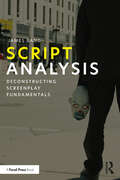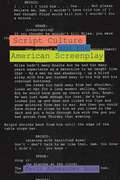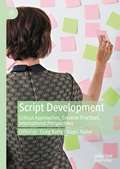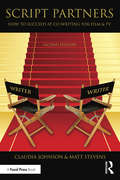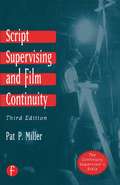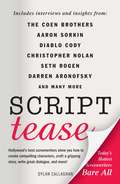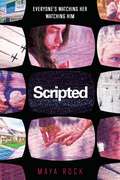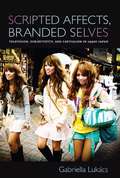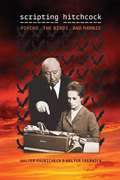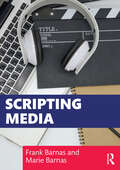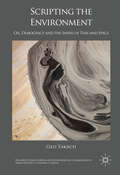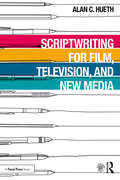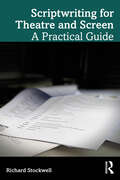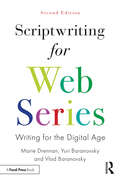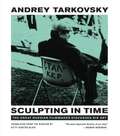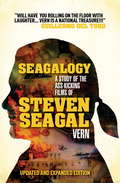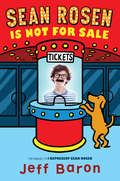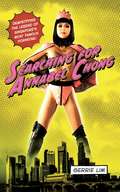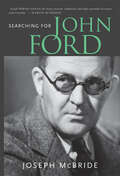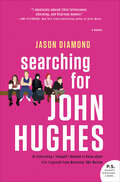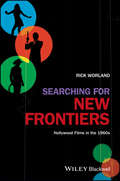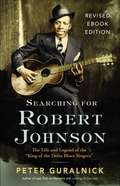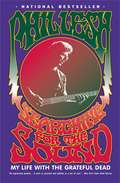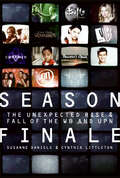- Table View
- List View
Script Analysis: Deconstructing Screenplay Fundamentals
by James BangA comprehensive step-by-step guide to deconstructing screenplay fundamentals, this book will allow readers to understand the elements, functions and anatomy of a screenplay. Not only will this book enable readers to accomplish a thorough analysis of a screenplay and understand the dramatic elements and their functions, but screenwriters will be able to apply these steps to their own writing. The book explores theme and premise, provides an in-depth study of character development, and breaks down the dramatic elements needed to construct a solid screenplay. It provides examples of the three-act structure, The Hero’s Journey, and the sequence method. Furthermore, it explores how the main plot and subplots are used in a storyline and discusses the importance of setting. Finally, it reveals screenwriting techniques and tools used by professional screenwriters, such as dramatic irony, reversal, and setup/payoff. To connect with a broad range of readers, the case studies used in this book are mainly from contemporary films, including Get Out (2017), Lady Bird (2018), The Dark Knight (2008), Toy Story (1994), Parasite (2019) and Whiplash (2014). Readers will understand how professional screenwriters use fundamental elements to construct, shape, develop, and tell a visual story. After reading this book, readers will comprehend the components critical to developing a screenplay. Ideal for students of screenwriting and filmmaking who want to better understand how to comprehensively analyze a screenplay, as well as professional screenwriters who want to utilize this method to better develop their own scripts.
Script Culture and the American Screenplay
by Kevin BoonBy considering the screenplay as a literary object worthy of critical inquiry, this volume breaks new ground in film studies.
Script Development: Critical Approaches, Creative Practices, International Perspectives
by Craig Batty Stayci TaylorThis book offers the first international look at how script development is theorised and practiced. Drawing on interviews, case studies, discourse analysis, creative practices and industry experiences, it brings together scholars and practitioners from around the world to offer critical insights into this core, but often hidden, aspect of screenwriting and screen production. Chapters speculate and reflect upon how creative, commercial and social practices – in which ideas, emotions, people and personalities combine, cohere and clash – are shaped by the practicalities, policies and rapid movements of the screen industry. Comprising two parts, the book first looks ‘into’ script development from a theoretical perspective, and second looks ‘out from’ the practice to form practitioner-led perspectives of script development. With a rising interest in screenwriting and production studies, and an increased appetite for practice-based research, the book offers a timely mapping of the terrain of script development, providing rich foundations for both study and practice.
Script Partners: How to Succeed at Co-Writing for Film & TV
by Matt Stevens Claudia JohnsonSome of the greatest movies and television series have been written by script partners. Script Partners, Second Edition brings together the experience, knowledge, and winning techniques of Hollywood’s most productive partnerships—including Lucy Alibar & Benh Zeitlin (Beasts of the Southern Wild ), Craig Borten & Melisa Wallack (Dallas Buyers Club), and Andrew Reich & Ted Cohen (Friends). Established and aspiring screenwriters will learn how to pick the right partner and the right project, co-create character and story structure, co-draft and revise a script, collaborate in film school and in the film industry, and manage both the creative and business sides of partnerships.
Script Supervising and Film Continuity
by Pat P MillerThis definitive handbook explains how a script is transformed into a motion picture or television program. Readers will learn the methodology and craft of the script supervisor, who ensures that the continuity of a film, its logical progression, is coherent. The book teaches all vital script supervising functions, including how to: .prepare, or "break down" a script for shooting .maintaining screen direction and progression .matching scenes and shots for editing .cuing actors .recording good takes and prints preparing time and log sheets for editingThis revision of an industry classic has been updated to reflect changes in the film industry in recent years, including the use of electronic media in the script supervisor's tasks. While it is written for the novice script writer, it can serve as a valuable resource for directors, film editors, scriptwriters and cinematographers.
Script Tease: Today's Hottest Screenwriters Bare All
by Dylan CallaghanThe Newest Screenwriting SecretsWhat do an erstwhile stripper, an ex–gambling addict, and a stoned Canadian teenager have in common? They wrote your favorite movies, and they're not who you'd expect.Diablo Cody (Juno), Darren Aronofsky (The Wrestler), and Seth Rogan (Superbad) are among the scribes interviewed in Script Tease, your main line to the most current screenwriting wisdom. Their funny, even touching tales of how they made it despite the odds will give you a revealing look into what it really takes to get into the industry.With the guidance of recent greats like Aaron Sorkin (The Social Network) and the Coen Brothers (True Grit), you will learn how to hone your craft and make it in an industry where only the best succeed.
Scripted
by Maya RockReality TV has a dark future in this thought-provoking thrillerTo the people suffering on the war-torn mainland, Bliss Island seems like an idyllic place. And it is: except for the fact that the island is a set, and the islanders' lives are a performance. They're the stars of a hit TV show, Blissful Days--Characters are adored by mainland viewers, yet in constant danger of being cut if their ratings dip too low. And no one really knows what happens to cut Characters.Nettie Starling knows she's been given the chance of a lifetime when a producer offers suggestions to help her improve her mediocre ratings--especially when those suggestions involve making a move on the boy she's been in love with for years. But she'll soon have to decide how far she's willing to go to keep the cameras fixed on her. . . especially when she learns what could happen to her if she doesn't.
Scripted Affects, Branded Selves: Television, Subjectivity, and Capitalism in 1990s Japan
by Gabriella LukácsIn Scripted Affects, Branded Selves, Gabriella Lukcs analyzes the development of a new primetime serial called "trendy drama" as the Japanese television industry's ingenious response to market fragmentation. Much like the HBO hit Sex and the City, trendy dramas feature well-heeled young sophisticates enjoying consumer-oriented lifestyles while managing their unruly love lives. Integrating a political-economic analysis of television production with reception research, Lukcs suggests that the trendy drama marked a shift in the Japanese television industry from offering story-driven entertainment to producing lifestyle-oriented programming. She interprets the new televisual preoccupation with consumer trends not as a sign of the medium's downfall, but as a savvy strategy to appeal to viewers who increasingly demand entertainment that feels more personal than mass-produced fare. After all, what the producers of trendy dramas realized in the late 1980s was that taste and lifestyle were sources of identification that could be manipulated to satisfy mass and niche demands more easily than could conventional marketing criteria such as generation or gender. Lukcs argues that by capitalizing on the semantic fluidity of the notion of lifestyle, commercial television networks were capable of uniting viewers into new affective alliances that, in turn, helped them bury anxieties over changing class relations in the wake of the prolonged economic recession.
Scripting Hitchcock: Psycho, The Birds, and Marnie
by Walter Srebnick Walter RaubicheckNominated for a nonfiction Edgar Allan Poe Award from the Mystery Writers of America, Scripting Hitchcock explores the collaborative process between Alfred Hitchcock and the screenwriters he hired to write the scripts for three of his greatest films: Psycho, The Birds, and Marnie. Drawing from extensive interviews with the screenwriters and other film technicians who worked for Hitchcock, Walter Raubicheck and Walter Srebnick illustrate how much of the filmmaking process took place not on the set or in front of the camera, but in the adaptation of the sources, the mutual creation of plot and characters by the director and the writers, and the various revisions of the written texts of the films. Hitchcock allowed his writers a great deal of creative freedom, which resulted in dynamic screenplays that expanded traditional narrative and defied earlier conventions. Critically examining the question of authorship in film, Raubicheck and Srebnick argue that Hitchcock did establish visual and narrative priorities for his writers, but his role in the writing process was that of an editor. While the writers and their contributions have generally been underappreciated, this study reveals that all the dialogue and much of the narrative structure of the films were the work of screenwriters Jay Presson Allen, Joseph Stefano, and Evan Hunter. The writers also shaped American cultural themes into material specifically for actors such as Janet Leigh, Tippi Hedren, and Tony Perkins. This volume gives due credit to those writers who gave narrative form to Hitchcock's filmic vision.
Scripting Media
by Frank Barnas Marie BarnasBringing together professional standards, practices, and jargon from across the industry, Scripting Media provides a complete overview of writing for divergent forms of media. While some forms of media writing have been honed and standardized over generations, others demand new ways of thinking and collaborating. Covering traditional forms of scriptwriting, such as news, advertising, and film scripting, as well as newer and more emerging areas of social media and virtual reality, this book is designed to prepare readers for the varying formats, styles, and techniques specific to each medium. Each chapter contains a list of key terms, an historical overview of the area, and technical specifications for students to be aware of. Exercises, essay prompts, and online links help reinforce students’ knowledge and provide avenues for private study. Written in an accessible and engaging style by two renowned media practitioners, authors, and teachers, Scripting Media is essential reading for students approaching media writing for the first time.
Scripting Media
by Frank Barnas Marie BarnasBringing together professional standards, practices, and jargon from across the industry, Scripting Media provides a complete overview of writing for divergent forms of media.While some forms of media writing have been honed and standardized over generations, others demand new ways of thinking and collaborating. Covering traditional forms of scriptwriting, such as news, advertising, and film scripting, as well as newer and more emerging areas of social media and virtual reality, this book is designed to prepare readers for the varying formats, styles, and techniques specific to each medium. Each chapter contains a list of key terms, an historical overview of the area, and technical specifications for students to be aware of. Exercises, essay prompts, and online links help reinforce students’ knowledge and provide avenues for private study.Written in an accessible and engaging style by two renowned media practitioners, authors, and teachers, Scripting Media is essential reading for students approaching media writing for the first time.
Scripting the Environment: Oil, Democracy and the Sands of Time and Space (Palgrave Studies in Media and Environmental Communication)
by Geo TakachThis volume explores how to engage audiences both beyond and within the academy more deeply in environmental research through arts-based forms. It builds on a multi-pronged case study of scripts for documentary film, audio-visual and stage formats, focusing on how the identity of a place is constructed and contested in the face of environmental concerns around fossil-fuel extraction in a globalized, visual society--and specifically on the rising, international public-relations war over Alberta’s stewardship of the tar sands. Each script is followed by discussion of the author’s choices of initiating idea, research sources, format, voices, world of the story, structure and visual style, and other notes on the convergence of synthesis, analysis and (re)presentation in the script. Included are lively analysis and commentary on screenwriting and playwriting theory, the creation and dissemination of the scripts, and reflections to ground a proposed framework for writing eco-themed scripts for screen, audio-visual and stage formats.
Scriptwriting for Film, Television and New Media
by Alan C. HuethWhat are the foundations of scriptwriting? Why do some scripts gain more prestige than others? How do you write a script and get it noticed? Scriptwriting for Film, Television and New Media answers these questions and more, offering a comprehensive introduction to writing scripts for film, television, the Internet, and interactive multimedia. Author Alan C. Hueth explains not just how to write, but how to think and apply the fundamental principles of screenwriting to multiple platforms and genres. This includes chapters on numerous script formats, including drama and comedy in film and TV, short films, commercials and PSAs, news and sports, interview shows, documentaries, reality shows, and corporate and educational media, including interactive multimedia. This book also addresses legal and ethical issues, how to become a professional scriptwriter, and a section on production language that provides helpful explanations of how camera, locations, visual and audio effects combine on screen to engage and sustain viewer attention, and, consequently, how to improve scriptwriting technique. The book features numerous case studies and detailed examples, including chapter by chapter exercises, plot diagrams, quick-look and learn tables that assist readers to quickly understand genre related script elements, and in-depth script close-ups to examine precisely how writers utilize the principles and elements of drama to create a successful script. It is also supported by a comprehensive companion website with further case studies, assignments, video clips, and examples of films and programs discussed in the book. Scriptwriting for Film, Television, and New Media is ideal for aspiring scriptwriters and anyone wanting to broaden their understanding of how successful scripts are created.
Scriptwriting for Theatre and Screen: A Practical Guide
by Richard StockwellScriptwriting for Theatre and Screen: A Practical Guide is an introduction designed to help readers understand the nature of dramatic scriptwriting and quickly guide them to a place where they can write, first a short play, and then a short screenplay.The book clearly points out not only the differences between writing for the stage and writing for the screen, but also the shared skills and the fundamental dramatic principles that unite them. The two sections (Theatre Writing and Screenwriting) are connected by a bridging chapter that explores similarities and differences between the two media. The chapters are arranged with a short introductory essay on topics such as generating ideas, structure, character, modes of address, empathy, status, visual writing, and revising and editing, followed by practical exercises with exemplar responses – including a sample short play and film. Two additional chapters address how to approach writing a self-reflexive commentary, explore how the skills covered can be applied to writing for television, and explain other skills a writer might need to develop when working in this industry.This complete introduction to writing dramatic scripts is intended for students of playwriting and screenwriting but is also suitable for all writers new to these areas and interested in developing their skills.
Scriptwriting for Web Series: Writing for the Digital Age
by Marie Drennan Yuri Baranovsky Vlad BaranovskyScriptwriting for Web Series: Writing for the Digital Age offers aspiring writers a comprehensive how-to guide to scriptwriting for web series in the digital age. Containing in-depth advice on writing both short- and long-form webisodes as part of a series, as well as standalone pieces, it goes beyond the screenwriting process to discuss production, promotion and copyright in order to offer a well-rounded guide to creating and distributing a successful web series. Written in a friendly, readable and jargon-free style by an experienced scriptwriting professor and two award-winning web series creators, it offers invaluable professional insights, as well as examples from successful series, sample scripts and interviews with key series creators, writers and industry professionals.
Sculpting in Time: Reflections on the Cinema
by Andrey Tarkovsky Kitty Hunter-BlairAndrey Tarkovsky, the genius of modern Russian cinema—hailed by Ingmar Bergman as "the most important director of our time"—died an exile in Paris in December 1986. In Sculpting in Time, he has left his artistic testament, a remarkable revelation of both his life and work. Since Ivan's Childhood won the Golden Lion at the Venice Film Festival in 1962, the visionary quality and totally original and haunting imagery of Tarkovsky's films have captivated serious movie audiences all over the world, who see in his work a continuation of the great literary traditions of nineteenth-century Russia. Many critics have tried to interpret his intensely personal vision, but he himself always remained inaccessible. In Sculpting in Time, Tarkovsky sets down his thoughts and his memories, revealing for the first time the original inspirations for his extraordinary films—Ivan's Childhood, Andrey Rublyov, Solaris, The Mirror, Stalker, Nostalgia, and The Sacrifice. He discusses their history and his methods of work, he explores the many problems of visual creativity, and he sets forth the deeply autobiographical content of part of his oeuvre—most fascinatingly in The Mirror and Nostalgia. The closing chapter on The Sacrifice, dictated in the last weeks of Tarkovsky's life, makes the book essential reading for those who already know or who are just discovering his magnificent work.
Seagalogy: The Ass-Kicking Films of Steven Seagal (New Updated Edition)
by VernVern, the self-styled 'outlaw film critic' is described by Hellboy director Guillermo Del Toro as "equal parts Hell's Angels and Pauline Kael... a national treasure!" Now Vern unleashes his magnum opus: an in-depth study of the world's only aikido instructor turned movie star/director/writer/blues guitarist/energy drink inventor, the ass-kicking auteur Steven Seagal. "A book that'll shake the very foundations of film criticism, break their wrists and then throw them through a window."
Sean Rosen Is Not for Sale
by Jeff BaronGet ready for the sequel to I Represent Sean Rosen, the original and very funny debut novel that has the New York Times-bestselling creator of Big Nate, Lincoln Peirce, proclaiming, "Sean Rosen is my hero!"The stakes are higher, the funny stuff is funnier, and the completely original and individual wunderkind Sean Rosen is balancing middle school and his career in ways never before seen. The adventures of Sean Rosen and his fictitious manager, Dan Welch, continue as Sean works on his screenplay, deals with seventh grade and track practice and a dog-walking job, records his podcasts, and tries to keep his brush with stardom a secret from his parents. Meanwhile, a major Hollywood movie studio has sent a private detective to Sean's town to find out who this Sean Rosen kid is, and what the nature is, exactly, of his big idea. Featuring another original Christoph Niemann cover, this is perfect for fans of Jack Gantos, Jeff Kinney, and Carl Hiassen.
Searching for Annabel Chong: Demystifying the Legend of Singapore's Most Famous Pornstar!
by Gerrie LimBack in January 1995 in Los Angeles, California, a Singaporean pornstar named Annabel Chong took cultural rebellion to an extreme, on terms that had never been negotiated before. She was filmed having sex with a long receiving line of men, servicing them 251 times over a ten-hour period to set a new world record: The World's Biggest Gangbang. Now bestselling author Gerrie Lim, Annabel's longtime friend and confidant, revisits those events and reexamines those scenarios to shed new light on her legend, to discover why such an enduring curiosity about her exists, and to learn why she is still regarded in her own native Singapore as something akin to a mythological figure. As Lim writes, "she did this gangbang as a gender studies/liberal- progressive/feminist statement to subvert gender stereotypes, but no one got it." This book, featuring many of the author's own conversations and correspondences with Annabel over the years, is the first serious inquiry into the fascinating persona of a seldomdiscussed, yet often secretly venerated, Asian celebrity.
Searching for John Ford
by Joseph McBrideJohn Ford's classic films—such as Stagecoach, The Grapes of Wrath, How Green Was My Valley, The Quiet Man, and The Searchers—have earned him worldwide admiration as America's foremost filmmaker, a director whose rich visual imagination conjures up indelible, deeply moving images of our collective past. Joseph McBride's Searching for John Ford, described as definitive by both the New York Times and the Irish Times, surpasses all other biographies of the filmmaker in its depth, originality, and insight. Encompassing and illuminating Ford's myriad complexities and contradictions, McBride traces the trajectory of Ford's life from his beginnings as “Bull” Feeney, the nearsighted, football-playing son of Irish immigrants in Portland, Maine, to his recognition, after a long, controversial, and much-honored career, as America's national mythmaker. Blending lively and penetrating analyses of Ford's films with an impeccably documented narrative of the historical and psychological contexts in which those films were created, McBride has at long last given John Ford the biography his stature demands.
Searching for John Hughes: Or Everything I Thought I Needed to Know about Life I Learned from '80s Movies
by Jason DiamondSearching for John Hughes is Jason Diamond’s hilarious memoir of growing up obsessed with the iconic filmmaker’s movies.From the outrageous, raunchy antics in National Lampoon’s Vacation to the teenage angst in The Breakfast Club and Pretty in Pink to the insanely clever and unforgettable Home Alone, Jason Diamond could not get enough of John Hughes’ films. So, he set off on a years-long delusional, earnest, and assiduous quest to write a biography of his favorite filmmaker, despite having no qualifications, training, background, platform, or direction. In Searching for John Hughes, Jason tells how a Jewish kid from a broken home in a Chicago suburb—sometimes homeless, always restless—found comfort and connection in the likewise broken lives in the suburban Chicago of John Hughes’ oeuvre. He moved to New York to become a writer of a book he had no business writing. In the meantime, he brewed coffee and guarded cupcake cafes. All the while, he watched John Hughes movies religiously.Though his original biography of Hughes has long since been abandoned, Jason has discovered he is a writer through and through. And the adversity of going for broke has now been transformed into wisdom. Or, at least, a really, really good story.In other words, this is a memoir of growing up. One part big dream, one part big failure, one part John Hughes movies, one part Chicago, and one part New York. It’s a story of what comes after the “Go for it!” part of the command to young creatives to pursue their dreams—no matter how absurd they might seem at first.
Searching for New Frontiers: Hollywood Films in the 1960s
by Rick WorlandSearching For New Frontiers offers film students and general readers a survey of popular movies of the 1960s. The author explores the most important modes of filmmaking in times that were at once hopeful, exhilarating, and daunting. The text combines discussion of American social and political history and Hollywood industry changes with analysis of some of the era’s most expressive movies. The book covers significant genres and evolving thematic trends, highlighting a variety of movies that confronted the era’s major social issues. It notes the stylistic confluence and exchanges between three forms: the traditional studio movie based on the combination of stars and genres, low-budget exploitation movies, and the international art cinema. As the author reveals, this complex period of American filmmaking was neither random nor the product of unique talents working in a vacuum. The filmmakers met head-on with an evolving American social conscience to create a Hollywood cinema of an era defined by events such as the Vietnam War, the rise of the civil rights movement, and the moon landing.
Searching for Robert Johnson: The Life and Legend of the "King of the Delta Blues Singers"
by Peter GuralnickThis highly acclaimed biography from the author of Last Train to Memphis illuminates the extraordinary life of one of the most influential blues singers of all time, the legendary guitarist and songwriter whose music inspired generations of musicians, from Muddy Waters to the Rolling Stones and beyond. The myth of Robert Johnson&’s short life has often overshadowed his music. When he died in 1938 at the age of just twenty-seven, poisoned by the jealous husband of a woman he&’d been flirting with at a dance, Johnson had recorded only twenty-nine songs. But those songs would endure as musical touchstones for generations of blues performers. With fresh insights and new information gleaned since its original publication, this brief biographical exploration brilliantly examines both the myth and the music. Much in the manner of his masterful biographies of Elvis Presley, Sam Phillips, and Sam Cooke, Peter Guralnick here gives readers an insightful, thought-provoking, and deeply felt picture, removing much of the obscurity that once surrounded Johnson without forfeiting any of the mystery. &“I finished the book," declared the New York Times Book Review, "feeling that, if only for a brief moment, Robert Johnson had stepped out of the mists.&”
Searching for the Sound: My Life with the Grateful Dead
by Phil Lesh"The bass player for the greatest improvisational band in American history tells the full, true story of his life, Jerry Garcia, and the Grateful Dead." "Phil Lesh first met Jerry Garcia in 1959 in the clubs of Palo Alto, California. At Garcia's suggestion, Lesh learned how to play the electric bass and joined him in a new group that blended R & B, country, and rock 'n' roll with an experimental fervor never before heard." "Now, in time for the Grateful Dead's fortieth anniversary, Phil Lesh offers the first behind-the-scenes history of the Dead - a story no one will ever know as he does. Lesh chronicles how the Dead's signature sound emerged, flowed, and swelled to reach millions of devoted fans, from their earliest gigs at Frenchy's Bikini-A-Go-Go for an audience of three, to the legendary Acid Tests, to packed stadiums around the world."--BOOK JACKET.
Season Finale: The Unexpected Rise & Fall of the WB and UPN
by Cynthia Littleton Susanne DanielsSeason Finale is an inside chronicle of the entertainment industry following the unexpected rise and fall of the WB and UPN networks.In the mid-1990s, Hollywood studios Warner Bros. and Paramount Pictures each launched their own broadcast television network, hoping to become the fifth player in an industry dominated by ABC, CBS, NBC, and, more recently, Fox. Against all odds, the WB and UPN altered primetime television’s landscape, only to merge as the CW in 2006—casualties of conflicting personalities, relentless competition, and a failure to anticipate the business’s future.Following the money, egos, and risks of network television, former WB executive Susanne Daniels and Variety television reporter Cynthia Littleton expose the difficulties of trying to launch two traditional broadcast networks just as cable and the Internet were ending their dominance. Through in-depth reportage and firsthand accounts, Daniels and Littleton re-create the creative and business climate that birthed the WB and UPN, illustrating how the race to find programming spawned their heated rivalry and created shows that became icons of youth culture. Offering insider stories about shows such as Buffy the Vampire Slayer, Dawson’s Creek, 7th Heaven, Gilmore Girls, Smallville, Felicity, Girlfriends, Everybody Hates Chris, and America’s Next Top Model, the authors present the creative environment that ushered these groundbreaking programs into living rooms across America.Despite success, the WB and UPN unraveled due to corporate miscalculations, management missteps, and industry upheaval that led to their decline—and rebirth as the CW. This is a cautionary and compelling entertainment saga about a precarious moment in television history, when the transformation of the broadcast networks signaled an inevitable shift for all pop culture.
